articles about Eight Section Brocade:
The Completeness Of Eight Section Brocade
Different Brocades
Eight Section Brocade - The Song & The Dance
Why Learn Eight Section Brocade?
Healing The Imbalance Caused by Daily Living
What Qigong Is All About
The Eight Sections
articles about dragon gate:
Dragon Gate has a fish story
Perfect Introduction to Inner Elixir
Qigong Medicine
What Dragon Gate Qigong Medicine Is Good For
Changing Fate and Destiny
Natural Alchemy
Eight Seas qigong Video
Now, that’s a miracle!
You are reading this because you just clicked or tapped with your finger on this email. Now that’s a miracle!
What just happened? Within a split second, your brain ordered your hand and fingers to execute a rather fine movement. Within that split second, an orchestration of neuronal firings and synaptic relays took place, yet you were likely unaware of any of it. It was almost automatic and quite magical. Every moment of our lives is filled with magic like that.
And that’s just the surface of it. You probably don’t open every email. Something attracts you to open certain ones and ignore others: maybe an expectation of information, or hoping to save money at a sale. So there is a rather complicated psychological process involved: more neuronal firings and synaptic connections, all within that second!
When all goes well, we go about life unconscious of all these miracles. We only notice when they fail to happen, as in brain or neurological damage. My practice specialty is neuro-acupuncture: using acupuncture to treat neurological problems. My Qigong practice and teaching is part and parcel of that. In my following emails I will talk about:
The benefits but also the problems of our magically efficient nervous system, especially as it relates to anxiety, depression, and addiction;
How we can learn to become aware at the neurological level with Qigong; and
How to use that awareness for our health, happiness, and transformation.
Unconscious Choice
Consciousness is an interesting thing.
Even though we are aware of certain things happening around us, our body sensations, and our feelings, we are mostly passive participants in our consciousness.
We go about life in a rather automatic way. Our brain and neurological system have developed integrated patterns of habitual firing that allows for unconscious facility. Imagine how dysfunctional it would be if we had to think about planting one foot in front of the other. Not so different with thoughts and feelings: something comes up.
We don’t make a conscious choice as to what to think or feel. We very much accept whatever surfaces as legitimate, and own them as our ‘selves’. In other words, our consciousness is largely unconscious, guided by a program we hardly understand. While it makes for great efficiency this unconscious system becomes a huge problem when it comes to negative thoughts, emotions and addiction.
Qigong practice is a discipline for recovering our conscious choice in our lives. I will explain the hows and whys in the next newsletters.
What happens before something happens?
What happens right before a voluntary act?
There’s a Chinese term for it. It’s called the ‘yi’. Yi can be translated as ‘intention’, or ‘thought’. In neuroscience terms it is the momentary firing of a complex of neurons that leads to the performance of an action. It’s a very tiny thing. You wake up in the morning, you feel the slightest urge, almost subliminal, and within seconds, you find yourself in the bathroom.
While the act is voluntary, the yi that leads to it is not necessarily so — consider that morning urge example. Yi is behind all our emotions, thoughts, and action. That complex of neuronal firing seems to be quite firmly set. That’s why each person tends to experience the same emotions, think the same thoughts, and respond to events in the same way over and over again.

